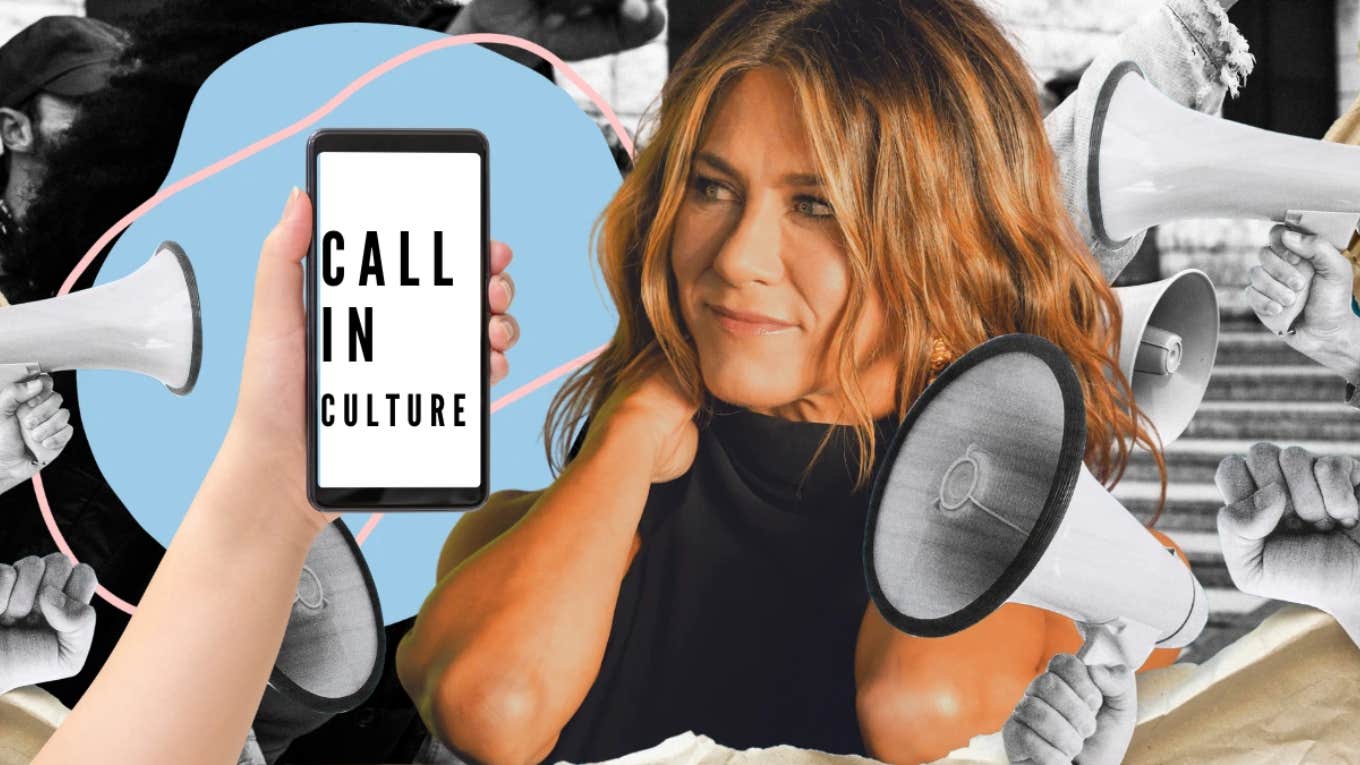Jennifer Aniston Saying She’s ‘Over’ Cancel Culture Comes From A Place Of Privilege
Aniston exists in a world where she can choose to tap out of caring about cancel culture.
 Ron Adar | Shutterstock, Stefano Oppo, Valentin Ghita's Images | Canva
Ron Adar | Shutterstock, Stefano Oppo, Valentin Ghita's Images | Canva In the cover article for The Wall Street Journal Magazine, published on August 22, 2023, Jennifer Aniston discussed the upcoming third season of “The Morning Show,” which she both produces and stars in. Its plot could have been lifted directly from real life, as it focuses on a morning broadcast news program after the male anchor was fired for allegations of sexual misconduct.
The show’s origin is rooted in shifting cultural conversations about consent, misconduct, and bodily autonomy in the entertainment industry. These topics are long overdue for being viewed through a critical lens, especially in relation to the ways certain people in Hollywood maintain power by way of abuse. Yet in discussing “The Morning Show,” Aniston was quoted as being “so over cancel culture,” while noting “I probably just got canceled by saying that.”
Jennifer Aniston saying she’s ‘so over’ cancel culture comes from a place of privilege that not everyone is afforded.
In referring to cancel culture, Aniston proclaimed, “I just don’t understand what it means. Is there no redemption? I don’t know. I don’t put everybody in the Harvey Weinstein basket.”
She described a sense of communal industry knowledge that Weinstein was a predator while acknowledging that she was never a target of his abuse. Still, she recognized that any interaction with Weinstein came with concern for physical safety. She explained, “He’s not a guy, you’re like, ‘God, I can’t wait to hang out with Harvey.’ Never. You were actually like, ‘Oh, God, OK, suck it up.’ I remember actually, he came to visit me on a movie to pitch me a movie. And I do remember consciously having a person stay in my trailer.”
Aniston’s ability to proclaim “being over” cancel culture highlights the level of privilege she maintains as a straight, wealthy white woman. The reality is that Aniston exists in a world where she can choose to tap out of caring about cancel culture. Her statement is representative of an attitude held by those who uphold a certain brand of third-wave feminism, the kind that centers the experience of straight, wealthy white women over anyone else.
Yet Aniston’s declaration of being 'so over' cancel culture echoes critiques of the tool as one that weaponizes exclusionary shaming tactics.
In 2020, Writer and activist adrienne maree brown wrote an essay touching on those themes. The essay later became part of her book “We Will Not Cancel Us And Other Dreams Of Transformative Justice.”
With eloquent, lyrical prose, brown parsed out the moments when “a call-out feels powerful, like the necessary move, versus when it feels like the witch trial/lynch mob energy is leading.”
She noted that there are moments where call-outs are necessary, like “when power is greatly imbalanced and multiple efforts have been made to stop ongoing harm, when someone accused of harm won’t participate in community accountability processes, the call-outs is a way of pulling an emergency brake.”
Still, she described her hope for alternatives to call out culture, saying, “I want us to adapt from systems of oppression and punishment to systems of uplifting and transforming.”
“I want our movement to feel like a vibrant, accountable space where causing harm does not mean you are excluded immediately and eternally from healing, justice, community or belonging,” brown proclaimed.
In a discussion with the Barnard Center for Research on Women, brown explained ways to uphold accountability, focusing on the idea of calling someone in instead of calling them out.
She stated, “We’ve all caused harm in some way, shape, or form, or we’ve colluded with harm in some way, shape or form… acknowledging that we all have the capacity for that and that we also all have the capacity for transformation and to change our behavior.”
Her approach places value on accountability, something that comes within community, based on empathy and understanding.
Aniston’s statement on cancel culture came off as flippant, yet she touched, however briefly, on the idea of redemption as a necessary part of accountability, and the way that true change is rooted in caring for those around us.
Alexandra Blogier is a writer on YourTango's news and entertainment team. She covers celebrity gossip, pop culture analysis and all things to do with the entertainment industry.

